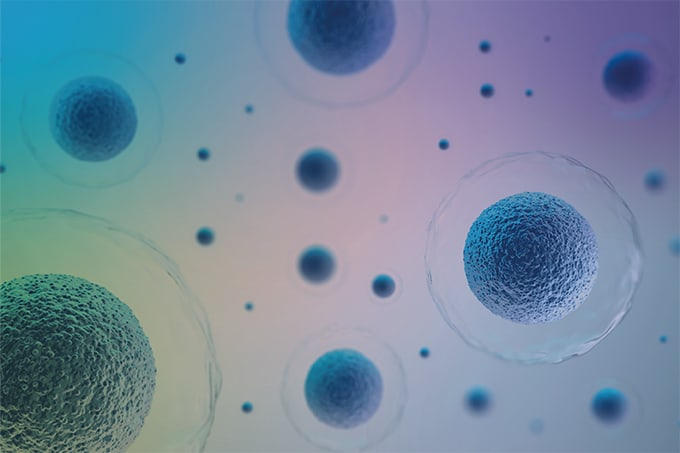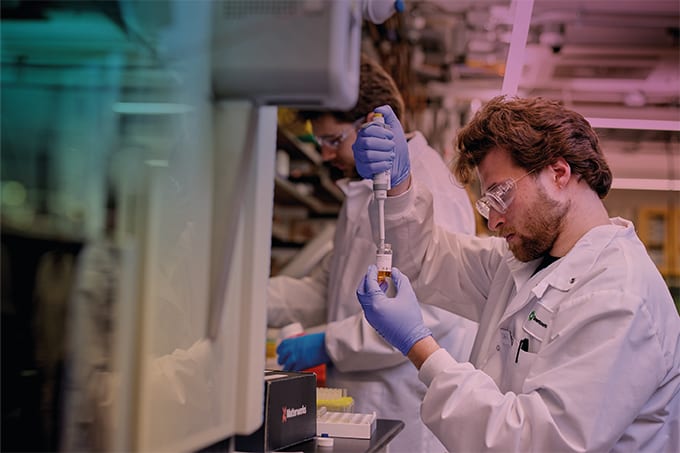
Alan George Marshall, co-inventor of Fourier transform ion cyclotron resonance mass spectrometry (FT-ICR MS), died on June 6, 2025, in Tallahassee, Florida. He was 81 years old.
Marshall was Robert O. Lawton Professor of Chemistry and Biochemistry at Florida State University (FSU) and founding director of the Ion Cyclotron Resonance (ICR) Program at the National High Magnetic Field Laboratory (MagLab).
Over a career spanning more than five decades, he led the development and global adoption of FT-ICR MS, establishing it as one of the most powerful techniques for the analysis of complex chemical mixtures in fields such as petroleum chemistry, proteomics, drug discovery, and environmental science.
An accidental chemist
Alan Marshall was born in Bluffton, Ohio, in 1944 and raised in San Diego, California. He enrolled in Northwestern University’s six-year medical program in 1961, but after three years, changed direction. “I still like medicine, but I hated medical school,” he later said (1). “The only degree I could get was in chemistry, so that's how I became a chemist.”
Marshall earned his PhD in physical chemistry from Stanford University in 1970, where he worked with John Baldeschwieler on both nuclear magnetic resonance (NMR) and ion cyclotron resonance (ICR). He later said of this time (2): “I spent a lot of time working on topics other than the assignment he gave me” – a pattern that would define much of his career.
Marshall joined the University of British Columbia in 1969. There, he and postdoctoral colleague Melvin Comisarow began experimenting with combining Fourier transform mathematics – borrowed from NMR – with ion cyclotron resonance detection. “It wasn’t accidental that it took two people,” Marshall reflected (2). “Most things aren't truly invented. People take something that's well known in one field and apply it to another.”
On December 17, 1973, the pair recorded the first FT-ICR mass spectrum, using methane gas and a 2-tesla magnet. “We just created a new technique,” Marshall told his colleague Naresh Dalal. “This is the world’s best mass spectrum.”
Their initial manuscript was accepted by Chemical Physics Letters in 1974. The paper has since been cited more than 1,000 times. As the technique matured, it demonstrated resolution and sensitivity beyond that of existing mass spectrometry methods.
Marshall moved to Ohio State University in 1980, where he directed the Chemical Instrumentation Center and continued developing FT-ICR instrumentation. In 1983, the group installed a 3-tesla FT-ICR system funded by the National Institutes of Health, allowing applications in biomolecular analysis. The introduction of electrospray ionization in the late 1980s accelerated this transition: “That’s when the growth really took off,” Marshall later said.
In 1993, he accepted a position at Florida State University, bringing FT-ICR to the newly established National High Magnetic Field Laboratory. “I decided that if I didn’t come here, I would have to compete with the person who did come,” he later recalled.
At MagLab, Marshall led the construction of multiple FT-ICR systems, including 9.4, 14.5, 15, and ultimately 21-tesla magnets – the most powerful of their kind in the world. “But it’s not just the magnet,” he explained (1). “It’s all the other stuff that goes into the spectrometer that’s really made it pay off.”
FT-ICR was used to analyze complex materials such as crude oil, where the number of distinct components can exceed tens of thousands. “We could identify the oil and know that it came from that spill rather than somewhere else,” Marshall said of the Deepwater Horizon oil spill analysis (1).
60,000 Citations and Counting
Marshall published more than 450 journal articles and four books, delivered over 1,400 lectures and presentations, and held four patents. His work has been cited more than 60,000 times (3).
His honors included:
ASMS Distinguished Contribution Award (1999)
Thomson Medal, International Mass Spectrometry Society (2000)
ACS Award in Analytical Chemistry (2002)
Chemical Pioneer Award, American Institute of Chemists (2007)
Induction into the Florida Inventors Hall of Fame (2016)
Fellow of the American Chemical Society, American Physical Society, AAAS, and the American Academy of Arts and Sciences
Marshall served as President of the American Society for Mass Spectrometry (2004–2006) and was named an inaugural ASMS Fellow in 2025 (ASMS Memorial, 2025).
“Aim for something important”
Throughout his 55-year career, Marshall mentored more than 100 graduate students and postdocs. “The students are the big joy,” he said in 2023 (3). “Watching them come along has been a real treat… It’s like family.” According to his late wife, Marilyn, “He has a servant’s heart… He feels an obligation to his family and to doing a good job for his profession.”
In The Analytical Scientist’s 2021 Power List, he offered this advice (4): “Don’t choose a project because it looks easy. Everything turns out to be hard anyway, so you might as well aim for something important!”
He also described the joy of mass spectrometry in the 2017 Power List – where he was ranked as the world’s second most influential mass spectrometrist (5): “It’s universal – every molecule has mass, and every different chemical formula has a different mass. Thus, we can resolve and identify more chemically different species than with any other technique.”
Marshall emphasized collaboration as a professional principle. “The two main things that have guided me,” he said during FT-ICR’s 50th anniversary (3), “are broad scientific interest – you never know where the next idea is coming from – and collaboration… Maybe [a student] makes a friend, maybe that person writes a letter, maybe they hire them.”
Marshall is survived by two children and four grandchildren. His wife of 54 years, Marilyn J. Marshall, passed away in 2021. Colleagues Chris Hendrickson, Kristina Håkansson, and Ryan Rodgers described him as a “treasured mentor to hundreds of students and postdocs… His legacy lives on through the science performed every day by his scientific progeny” (3).
References
- Nation MagLab, “An Inventor's Story: Dr. Alan Marshall” (2016). Available at: https://www.youtube.com/watch?v=etpuEHdwHZM.
- National MagLab, “Alan Marshall: A scientist and a Gentleman” (2022). Available at: http://bit.ly/3TJ4IDs
- FSU, “Remembering the MagLab’s Alan Marshall, pioneer in analytical chemistry” (2025). Available at: http://bit.ly/4lxrrP4.
- The Analytical Scientist, “Power List 2021”. Available at: http://bit.ly/4434s8y.
- The Analytical Scientist, “Power List 2017”. Available at: http://bit.ly/3I3Aw3o.




